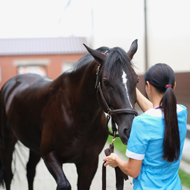The case is the first of Ophidascaris seen in a human.
A woman in Australia has made medical history after surgeons removed a live roundworm from her brain.
It is the first time that the parasitic Ophidascaris robertsi roundworm, which usually lives in the carpet python, has been found in a human.
The 64-year-old woman, from New South Wales, first developed pain and diarrhoea, followed by a dry cough and night sweats.
By the following year, she was experiencing forgetfulness and worsening depression. An MRI scan revealed a frontal lobe lesion.
In June 2022, surgeons at Canberra Hospital performed an open biopsy and removed a ‘string-like structure’ from the leison. It turned out to be a live roundworm, eight-centimetres in length.
The Ophidascaris robertsi roundworm is common to carpet pythons, living in the snake’s oesophagus and stomach, and shedding its eggs in the host’s faeces.
Researchers at the Australian National University, who have written a scientific paper on the case, believe the woman caught the parasite after collecting warrigal greens, a type of grass used in cooking, by a lake where a python had shed the parasite.
It is suspected that larvae were also present in other organs, including the woman’s lungs and liver, although no parasites were identified by respiratory samples and a lung biopsy.
The case has led the scientists involved to warn about the dangers of zoonotic infections.
Associate professor Sanjaya Senanayake said: “There have been about 30 new infections in the world in the last 30 years. Of the emerging infections globally, about 75 per cent are zoonotic, meaning there has been transmission from the animal world to the human world. This includes coronaviruses.
“This Ophidascaris infection does not transmit between people, so it won’t cause a pandemic like SARS, COVID-19 or Ebola. However, the snake and parasite are found in other parts of the world, so it is likely that other cases will be recognised in coming years in other countries.”
Associate professor Karina Kennedy added: “People who garden or forage for food should wash their hands after gardening and touching foraged products. Any food used for salads or cooking should also be thoroughly washed, and kitchen surfaces and cutting boards, wiped downed and cleaned after use.”
Image (C) Shutterstock



 The BEVA has opened two new roles on its Nurse Committee.
The BEVA has opened two new roles on its Nurse Committee.